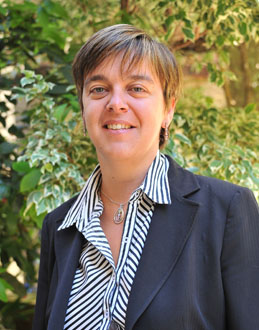Monaco Statistics (IMSEE) has a new Director as of late January : Sophie Vincent. We gained her first impressions when she succeeded Lionel Galfré, who was very successful in IMSEE since its creation in 2011.
Could you tell us briefly about your career?
After a Master in tourism and hotel management and planning, I went into law and political science. After my studies I held various positions in the vocational training sector, firstly as Youth Employment Unit manager in 2001. I then became the manager of the employment department in 2009, then deputy labour director in 2015. So I have worked a lot on social inclusion and labour law, and also on the implementation of statistics relating to the labour market.
Managing IMSEE, one of the showcases of the Administration, then seemed to me to be a very interesting development opportunity as it provides an all-round view of Monaco, ‘looking at the big picture’ and in all areas. I am also pleased to be working with this very strong team.
Was there surprise at your arrival?
Lionel Galfré built a robust institute, enjoying an excellent image. That is not a surprise, but our statistics provide technical and scientific support to a very large public, and the use of our website, among other things, demonstrates this. IMSEE has become a reference, with a small staff: five people to date, and three being recruited. The production of IMSEE and its teams is really remarkable, I want to emphasise that. I hope we will be proactive for many studies, in all areas, to continue and enrich the work done by my predecessor.
What thrust do you want to give IMSEE? Are any new studies planned?
To support public policy, we provide statistical indicators to give a realistic view of the Principality, globally and in very specific areas.
In the medium term, we are working on a study in contact with the Committee for Promotion and Protection of Women’s Rights: domestic violence, male and female wage studies.
We will also study teenagers’ lifestyles, particularly with regard to addictions.
Another of our missions is to give a statistical culture to economic entities that hold data. In this way, in their work everyone will be aware of the importance of data, indicators, the way they are gathered and analysed.
Finally, I believe we need to strengthen the view of our work abroad: translate publications, participate in international symposia, create links with other statistics institutes.
The UN created World Statistics Day in 2015. In addition, the importance of data quality is highlighted constantly. Can you reassess this importance at the macroeconomic level, in private or public areas?
Statistics now have a prominent position in governance. They provided clear, precise indicators covering all economic sectors of a country, and also aim to allow projections, notably through extrapolation.
In fact, it seems difficult to put development strategies in place if you cannot establish an objective state of play with reliable, measurable indicators, through statistics. So statistics make up the basis of elaboration for public policy.
In that respect, macroeconomic statistics can give an overview but must be coupled with microeconomic data. This combination is necessary for a clear and objective view of a situation or an economic player at a given time.
It must all be based on correctly structured, clear and reliable data. There are no good studies without good data. Henceforth, all players - whether public or private - must be made aware of the importance of having robust and good quality data.
With regard to the Finance sector, it is often said that residents have a limited percentage of their assets in Monaco. But there is nothing to prove this. Would it be possible to devise a study to validate – or invalidate – these assumptions?
To date, no such requests have been made to IMSEE, as such a study seems almost impossible to perform, given banking secrecy among other things.
The new studies IMSEE conducts are dependent on already planned studies and priorities, and are defined and validated by IMSEE’s Scientific Council. To date, no requests have been made for such a study so it has not been raised in Council.
Subject to Scientific Committee agreement and with the support, on this matter, of the Ministry of Finance and Economy, we remain open to any support we can provide, to both private and public operators, in terms of studies and statistics related to the financial centre, on condition that they are feasible and of real interest to the Principality.
Crédit photo : Direction de la Communication / Charly Gallo






